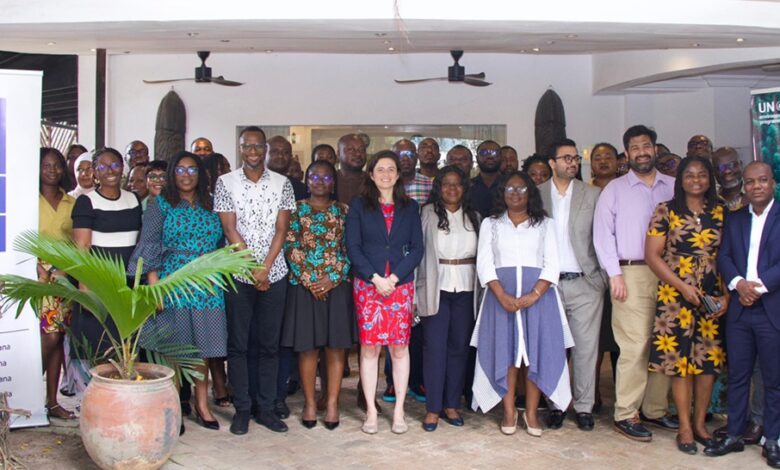Ghana Plots New Growth Path: Links Jobs, Growth and Environmental Sustainability

Ghana is moving to embed sustainability at the core of its economic transformation agenda, with policymakers and development partners advancing plans for a “nature-positive economy” that balances growth with environmental accountability.
At a two-day stakeholder workshop in Accra, supported by the UN Environment Programme World Conservation Monitoring Centre (UNEP-WCMC) and the United Nations Development Programme (UNDP), experts from government, business, and academia worked on a roadmap that integrates biodiversity and ecosystem services into national fiscal and economic planning. The initiative, funded by the UK’s Department for Environment, Food and Rural Affairs (DEFRA), is part of the global Nature Transition Support Programme (NTSP).
Dr. Abdul-Razak Saeed, UNDP Ghana’s Head of Environment and Climate Cluster, said the approach represents a strategic shift in how Ghana measures prosperity. “Aligning our development pathways with the Sustainable Development Goals and the Kunming–Montreal Global Biodiversity Framework is key to a sustainable and inclusive future,” he said, stressing that UNDP will back innovative financing solutions to drive this transition.
For the National Development Planning Commission (NDPC), the reforms go beyond environmental gains and touch on Ghana’s long-term competitiveness. Dr. Michael Kusi Appiah, Chief Analyst for Macroeconomic Modeling at NDPC, cautioned that job creation and growth targets could be undermined if the country ignores “the hidden social and ecological costs of unsustainable resource use.”
The NTSP programme, which is also being implemented in Ecuador, Colombia, Indonesia, and Vietnam, has reached a pivotal stage in Ghana. Programme Officer Hamza Butt outlined its four guiding pillars: integrated economic–ecological modelling, political economy analysis, policy coherence, and alternative development pathways. These are expected to give policymakers tools to weigh economic decisions against environmental trade-offs, creating a more predictable investment climate.
Speaking from the Presidency, Dr. Ishmael Nii A. Doodoo, who leads the 24-Hour Economy and Accelerated Export Development Secretariat, underscored the private sector opportunities within the roadmap. “The NTSP Project presents timely opportunities that can significantly shape the second phase of Ghana’s 24-Hour Economy. Building professional capacity within the nature-positive sector is key to unlocking sustainable growth,” he said.
Analysts say the move reflects a growing recognition that sustainable economic policies are not only about climate commitments but also about reducing fiscal risks, expanding green industries, and attracting investment into emerging markets such as clean energy, digital agriculture, and eco-tourism.
The workshop concluded with a consensus that Ghana’s future growth must integrate environmental accountability, positioning the country to attract international capital while securing the long-term health of its economy and natural resources.





